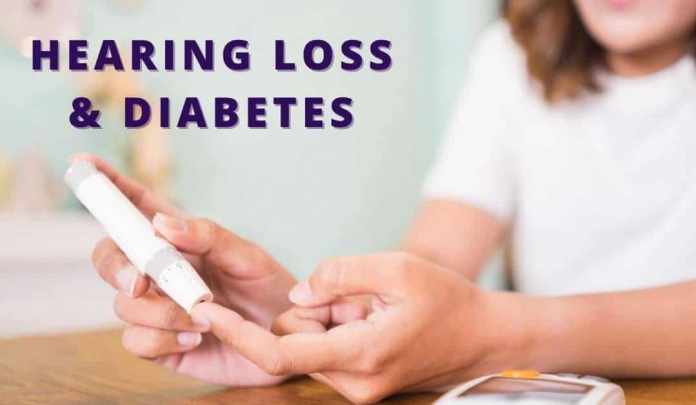Diabetes is on the rise. According to the World Health Organization, the number of people suffering from the condition rose from 108 million in 1980 to 422 million in 2014. If that doesn’t concern you, it should. Let’s see the unfortunate connection between diabetes and hearing loss.
Although treatable, this chronic illness tends to be extremely debilitating. If left uncontrolled, it can lead to a number of devastating conditions, including:
- Renal failure
- Tuberculosis
- Cardiovascular problems
- Increased risk of heart disease and stroke
- Blindness
- Chronic fatigue
- Sleep apnea
- Dementia, Alzheimer’s in particular
- Increased susceptibility to skin problems such as fungal infections
- Nerve damage in extremities
- Slower healing
- Hearing damage or complete hearing loss
Today, we’re going to discuss the last one. We’ll examine why diabetes can lead to hearing impairment. More importantly, we’ll explain how you can prevent that from happening.
Table of Contents
Why Diabetes Causes Hearing Damage
In a 2008 study published by the National Institutes of Health, researchers found that hearing loss in diabetic adults was twice as prevalent compared to non-diabetic adults. It further revealed that even without the presence of diabetes, high blood sugar carries an increased risk of hearing damage. According to Diabetes.co.uk, researchers believe that this is because prolonged high levels of blood glucose affect the supply of oxygen to the inner ear, which damages both the vessels and sensitive cells of the organ over time.
It is, after all, well known that circulatory issues and hearing impairment are closely linked — it follows that any condition which impacts the circulatory system would, by association, also damage the ears.
How To Prevent Diabetes
Unfortunately, there’s no way to prevent Type 1 diabetes. The condition is genetic. That said, the earlier one receives a diagnosis, the easier it becomes to manage in the long-term.
As for Type 2, though the exact mechanisms by which it develops are relatively unknown, it’s the result of two interrelated issues, per the Mayo Clinic:
- Cells in the human body, particularly the liver, fat, and muscles, become resistant to insulin. As a result, they’re unable to take in the necessary amount of sugar.
- The pancreas cannot produce enough insulin to counteract the above problem.
Most researchers agree that the primary risk factors are inactivity and weight problems. The jury, however, is still out on precisely how much each factor contributes. Other risk factors include:
- Poor diet
- Age
- High blood sugar, known as prediabetes
- Low blood lipid levels
- Family history
The good news is that, in light of the above, prevention of type 2 diabetes is actually relatively simple. Eat well, exercise regularly, and do your best to maintain a healthy body weight. Be sure to also receive regular hearing tests too, as early diagnosis of hearing impairment (and diabetes) greatly improves one’s outcome.
About the Author:
Pauline Dinnauer is the VP of Audiological Care at Connect Hearing, which provides industry-leading hearing loss, hearing testing, and hearing aid consultation across the US.












